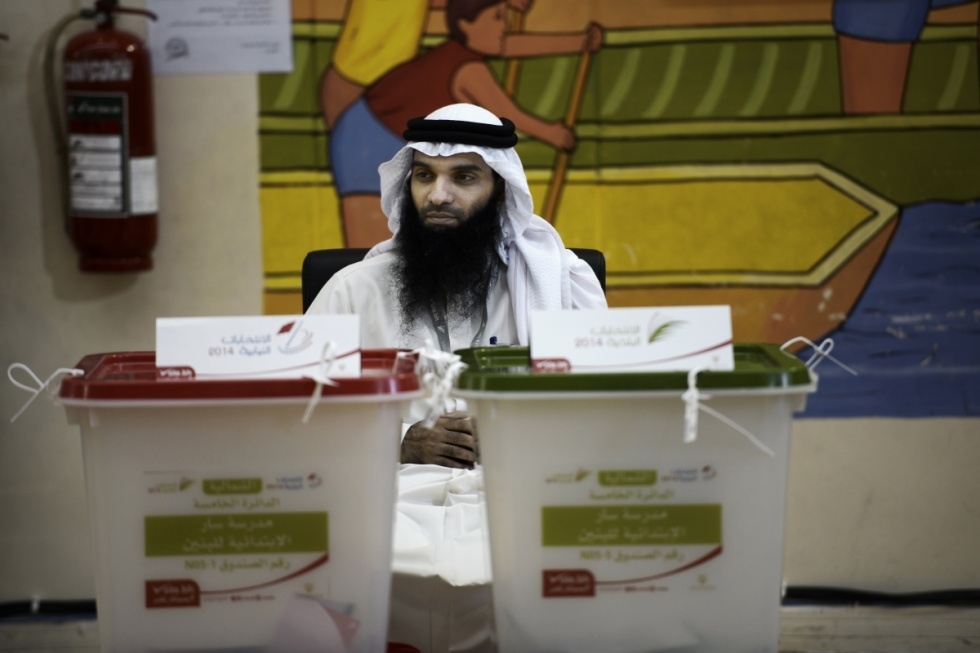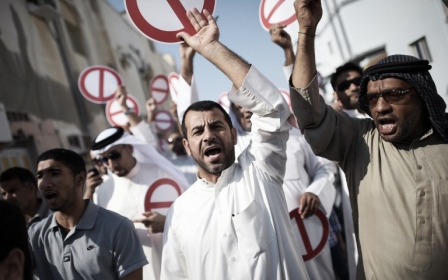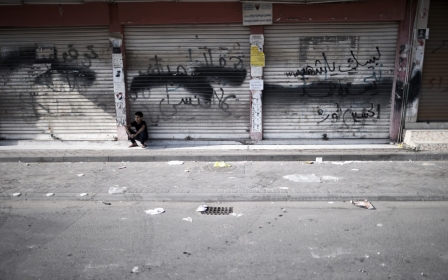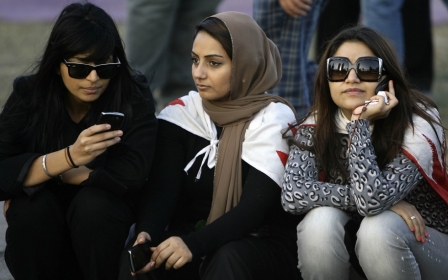Minister hails Bahrain election a 'great success' as protesters rally against the king

Bahrain held the final round of its legislative elections on Saturday, the first since authorities crushed pro-democracy protests that erupted in February 2011.
Controversy clouded last weekend's first round and its focus on turnout, a key marker of the validity of the election, after the opposition boycotted it, calling it a "farce".
The official BNA news agency said people flocked to polling stations in large numbers Saturday to choose from among 68 candidates to fill the 34 out of 40 seats not decided last week.
Justice Minister Sheikh Khaled bin Ali al-Khalifa, who heads the kingdom's electoral commission, told a news conference the election was "a great success".
"The people have made their choice," he said after polling stations closed at 1700 GMT.
Voting had begun 12 hours earlier amid tight security. No major incidents were reported, although daily protests continued to be seen, with banners held in Shiite areas calling for King Hamad al-Khalifa to be toppled.
BNA said voting had been brisk, but residents of Shiite-populated villages said turnout had been low there.
The electoral commission put turnout at 52.6 percent in Sunday's first round, but the Shiite opposition said only 30 percent of eligible voters had cast their ballots.
Both sides traded accusations of irregularities.
The opposition said tens of thousands of people were pressured to vote, while the authorities accused Shiites of preventing others from reaching polling stations.
Authorities have enticed voters to take part by offering raffles for a free iPhone and warned those who stay at home risk losing access to government services.
Prior to the election Sunni Bahrainis, traditionally a community viewed as loyal to the crown, expressed their disillusionment with the parliament, which they described as “toothless” due to its lack of authority over the legislative process.
The justice minister warned on Saturday that "those who doubt the election results will be held accountable".
Since the uprising began in February 2011, at least 89 people are estimated to have been killed in clashes with security forces, and hundreds arrested and tried.
The tiny Gulf state and key US ally remains divided nearly four years after the protests.
Of the previous parliament elected in 2010, 18 MPs from the main opposition Al-Wefaq grouping withdrew in 2011 in protest at the "repression" of the pro-democracy protests.
New MEE newsletter: Jerusalem Dispatch
Sign up to get the latest insights and analysis on Israel-Palestine, alongside Turkey Unpacked and other MEE newsletters
Middle East Eye delivers independent and unrivalled coverage and analysis of the Middle East, North Africa and beyond. To learn more about republishing this content and the associated fees, please fill out this form. More about MEE can be found here.




